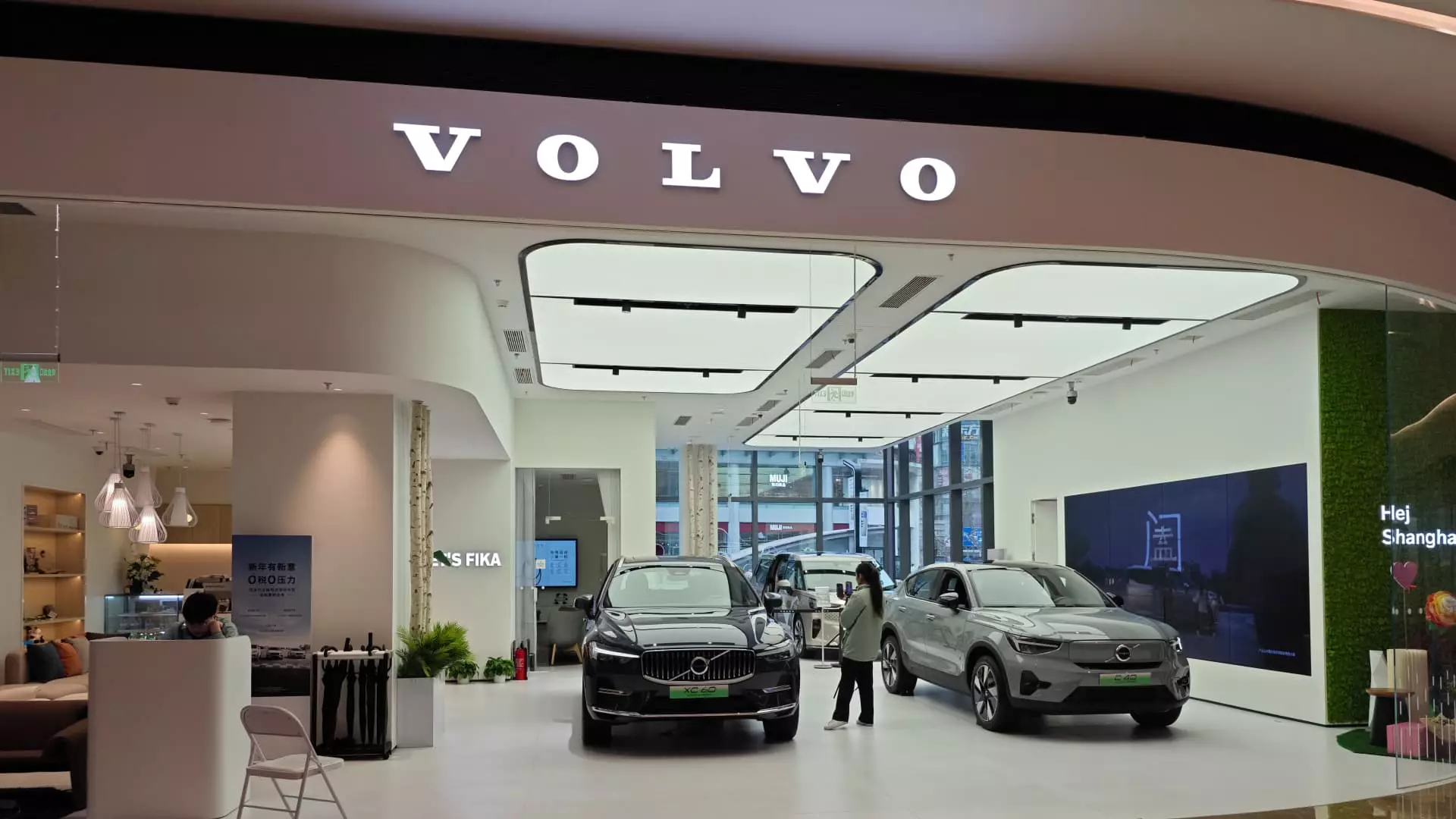Volvo Cars made the decision to adjust its margin and revenue targets, citing increased complexity in global trade and tariffs as a primary factor. The Swedish automaker, which is majority-owned by China’s Geely Holding, stated that it is now aiming for an EBIT margin goal of 7-8% by 2026, down from its previous target of “above 8%.” Additionally, the company will focus on outperforming the premium car market until 2026 rather than aiming for a specific revenue range as previously announced.
The automobile industry is facing challenges related to international trade disputes and tariffs, which have created hurdles for automakers like Volvo Cars. The company’s shares experienced a 3.2% increase following a recent decline, highlighting the volatility of the market. Ever-changing geopolitical landscapes, especially between the European Union, China, and the U.S., have added to the complexities of the industry as it transitions towards electric vehicles.
Volvo Cars has been actively working on transitioning towards electric and plug-in hybrid models, with its focus on product plans for the future. While the company currently has five fully-electric models on the market and five in development, it recently announced that it will no longer target 100% electric vehicle sales by 2030. Instead, Volvo Cars is now aiming for a range of 90-100%, allowing mild hybrid models to continue being sold alongside electric offerings.
Several factors influenced Volvo Cars’ decision to adjust its targets, including consumer demand, slow rollout of charging infrastructure, withdrawal of government incentives in certain markets, and uncertainties surrounding tariffs on electric vehicles. The company remains committed to fully electric sales in the long run, emphasizing the importance of suitable market conditions for such a transition.
In an effort to stay competitive in the evolving landscape of the automobile industry, Volvo Cars announced an extension of its partnership with U.S. chip giant Nvidia. The collaboration will focus on developing features like advanced driving assistance and autonomous driving systems. Additionally, the company plans to streamline its manufacturing process by adopting a “single technology stack” to reduce costs associated with electric vehicle production.
Despite the challenges faced by Volvo Cars, the company reported a 3% year-on-year increase in global sales in August. The growth was largely driven by a 32% surge in Europe, while China experienced a decline of 23% in sales. Fully-electric and plug-in hybrid vehicles accounted for nearly half of all vehicle sales in August 2024, indicating a growing interest in alternative fuel vehicles. In July, Volvo Cars also reported a record quarterly operating profit, showcasing its ability to adapt to market demands.
Volvo Cars’ decision to adjust its targets reflects the ever-changing landscape of the automobile industry. By addressing challenges related to global trade, tariffs, and consumer demand, the company is positioning itself to thrive in a market dominated by electric vehicle transitions. Through strategic partnerships and innovative technologies, Volvo Cars is poised to continue its growth and remain competitive in the years to come.

